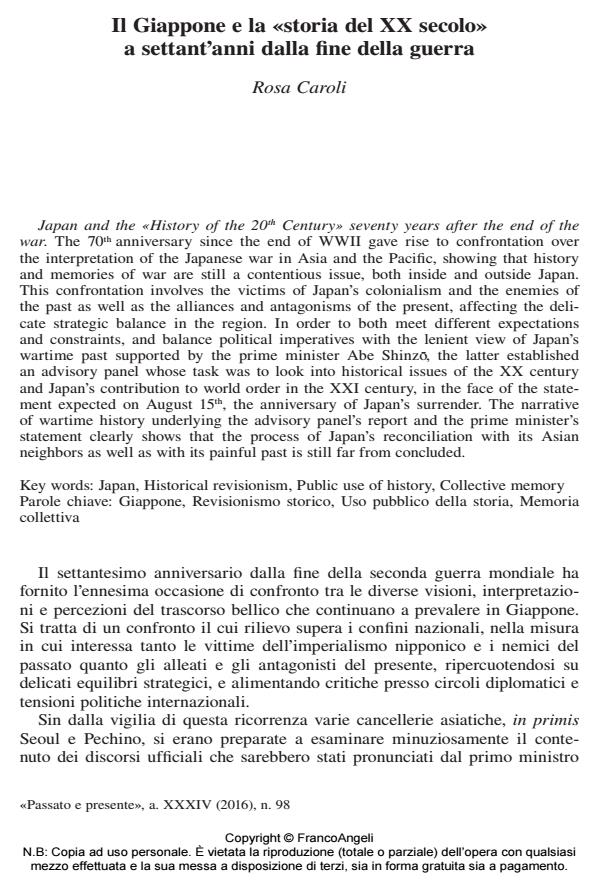Japan and the «History of the 20th Century» seventy years after the end of the war
Journal title PASSATO E PRESENTE
Author/s Rosa Caroli
Publishing Year 2016 Issue 2016/98
Language Italian Pages 19 P. 55-73 File size 141 KB
DOI 10.3280/PASS2016-098003
DOI is like a bar code for intellectual property: to have more infomation
click here
Below, you can see the article first page
If you want to buy this article in PDF format, you can do it, following the instructions to buy download credits

FrancoAngeli is member of Publishers International Linking Association, Inc (PILA), a not-for-profit association which run the CrossRef service enabling links to and from online scholarly content.
The 70th anniversary since the end of WWII gave rise to confrontation over the interpretation of the Japanese war in Asia and the Pacific, showing that history and memories of war are still a contentious issue, both inside and outside Japan. This confrontation involves the victims of Japan’s colonialism and the enemies of the past as well as the alliances and antagonisms of the present, affecting the delicate strategic balance in the region. In order to both meet different expectations and constraints, and balance political imperatives with the lenient view of Japan’s wartime past supported by the prime minister Abe Shinzo - , the latter established an advisory panel whose task was to look into historical issues of the XX century and Japan’s contribution to world order in the XXI century, in the face of the statement expected on August 15th, the anniversary of Japan’s surrender. The narrative of wartime history underlying the advisory panel’s report and the prime minister’s statement clearly shows that the process of Japan’s reconciliation with its Asian neighbors as well as with its painful past is still far from concluded.
Keywords: Japan, Historical revisionism, Public use of history, Collective memory
Rosa Caroli, Il Giappone e la «storia del XX secolo» a settant’anni dalla fine della guerra in "PASSATO E PRESENTE" 98/2016, pp 55-73, DOI: 10.3280/PASS2016-098003